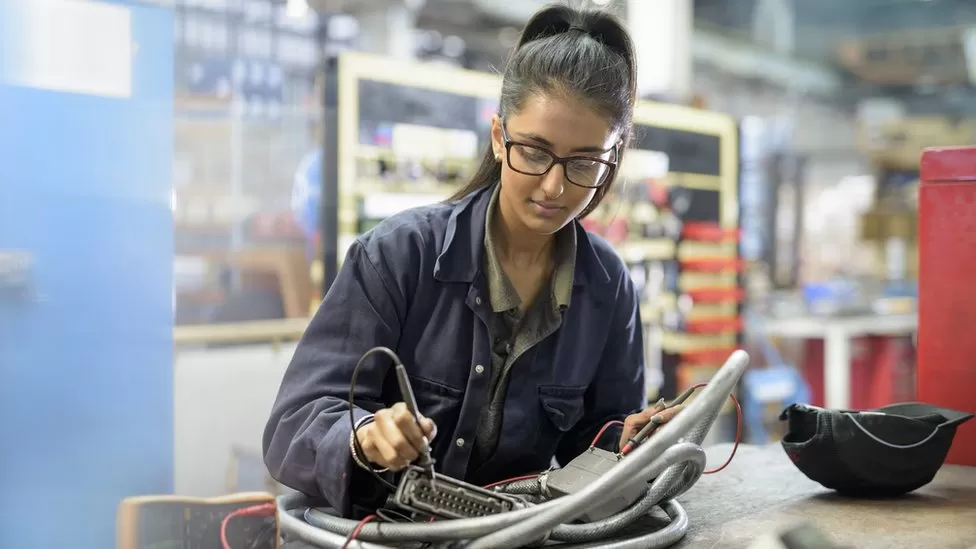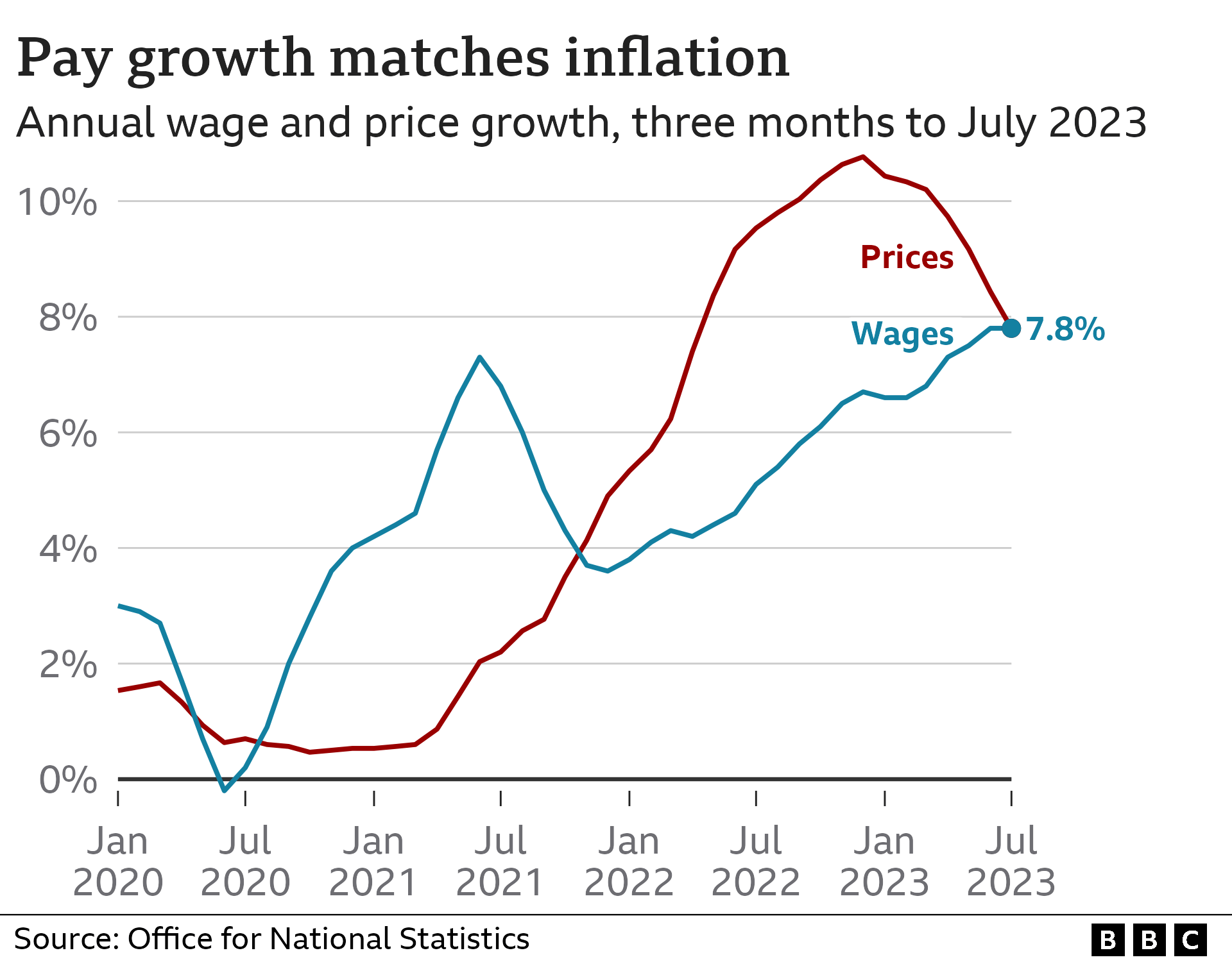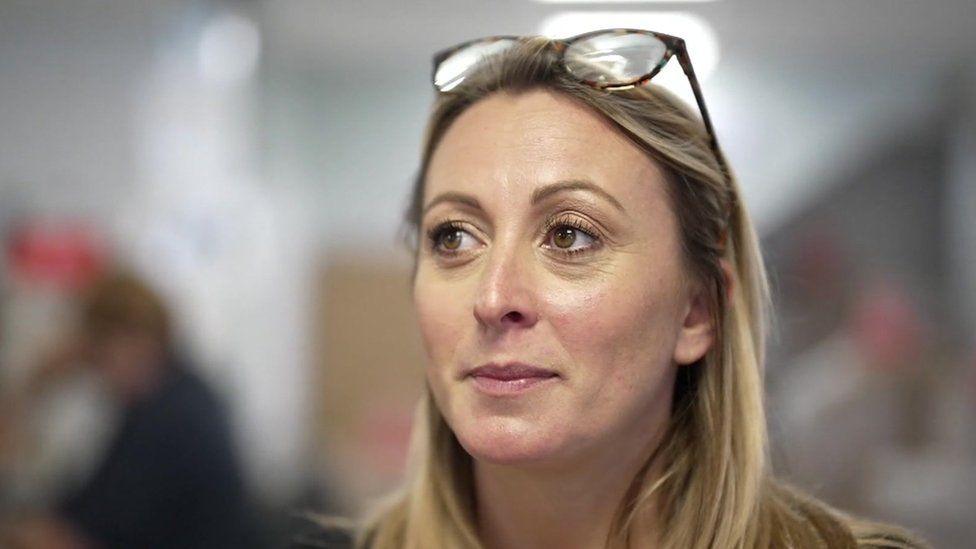
Pay matches price rises even as unemployment rises
Wage growth has caught up with rising prices for the first time in nearly two years, even as unemployment rises.
Regular pay, excluding bonuses, rose by 7.8% in May to July compared with a year earlier – matching the pace of inflation over the same period.
Not everyone’s pay will be rising by that amount. The figure is an average across the economy.
And there was less good news elsewhere. The unemployment rate went up, and job vacancies fell again.
Overall, it’s a mixed picture with a lot of moving parts. While wages are no longer being squeezed by inflation, on average, there are now consistent signs that the jobs market is beginning to “turn”.

Darren Morgan, director of economic statistics at the Office for National Statistics (ONS), which published the data, said earnings continued to increase rapidly, while inflation – the measure of how fast prices of goods and services are rising – has come down from its highs.
“This means people’s real pay is no longer falling,” he said.
However, the headline unemployment rate is up to 4.3% for the first time in nearly two years, just below 1.5 million. It is low by historic standards, but has jumped 0.5%.
Mr Morgan told the BBC’s Today programme that the increase in unemployment was driven by men, and by those out of work for up to six months.
“So it seems that people who are re-entering the jobs market after telling us they are unavailable for work or they’ve lost their job, are taking longer to find work compared to what we saw earlier in the year.”
At the same time, the number of job vacancies has dropped below one million. Interest rate rises are having an impact on slowing the jobs market. While that has not yet filtered through to lower wage claims, it should do eventually.
The Bank of England hawks, who want to raise rates further, will focus on record earnings rises, in cash terms (though it is important to note that real earnings flat at zero, using the Consumer Prices Index measure, is still far from normal for a measure which before the Great Financial Crisis, grew by 2% in a typical year).
The doves, who think we have perhaps had enough rises for now, will focus on rising joblessness and fewer vacancies. All eyes now on the inflation data next week, before a decision next Thursday.
Reacting to the latest figures, Chancellor Jeremy Hunt said: “It’s heartening to see the number of employees on payroll is still close to record highs and that our unemployment rate remains below many of our international peers.”
He said wage growth “remains high”, but added: “For real wages to grow sustainably we must stick to our plan to halve inflation.”
The most politically important number to emerge today, however is 8.5% – the total growth in earnings in cash terms, and the figure which will determine the rise in the state pension next April thanks to the triple lock.
This is almost certain to be higher than the rise in prices next month (around 7%) normally used to increase most benefits and tax credits.
The government is pondering whether to save billions by using a lower number even than that next April. A decision will be made before November’s Autumn Statement.

Joanne Martin works at LED designer and manufacturer Marl International in Ulverston, Cumbria where some staff have had pay rises of up to 20%.
“It’s been a really good uplift,” she said. “I think sometimes taking the stress away from home, having that extra little bit of money definitely makes it less stressful.
“It makes you less stressed at work as well, because you’re not worrying too much all the time. So it’s definitely been a positive impact.”